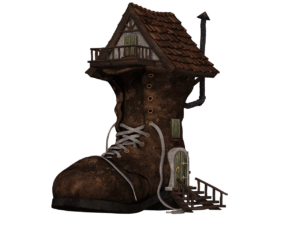Is Your HVAC System the Right Size For Your Home?
Why Right Sized Air Conditioning and Heating Equipment Matters to You

A few years ago, many HVAC professionals and homeowners thought “the bigger the better” when it came to air conditioning and heating equipment for your home. After all, this is Southern California. Big dogs, big trucks, and making a big splash are the norm for many of us. Why wouldn’t you want the largest system available to heat and cool your home sweet home? Surely that would translate into more indoor comfort, no matter what your square footage.
Except it doesn’t.
The truth is that the wrongly sized air conditioner and furnace frequently translate into poor system operation, higher energy bills, and less indoor comfort for you and your family. In fact, it’s not even as simple as matching the size of your house to corresponding HVAC equipment. A big home (or a small one) does not necessarily mean you need a relatively sized system. The story is far more complicated.
HVAC Sizing Calculations Depend on Multiple Factors
The good news? A properly installed HVAC system correctly sized for your home can be expected to last up to 15 years with appropriate maintenance. But along with inefficient functioning, over or under-sized HVAC systems may give out a lot sooner. Yet according to the National Institute of Building Services, many contractors choose HVAC systems simply by the dwelling’s square footage. This is a mistake. Instead, homebuilders or anyone else installing your new HVAC system must consider issues like load estimate, maximum occupancy, SEER ratings and even integrated part-load value. Confused yet?
Don’t worry. It starts with something called the “thermal envelope” of your home. This essentially refers to the barriers between you and the outside: the walls, the insulation, the roof, the windows, the doors and even the foundation of your home. From the first cave dwellings to the most contemporary Tuscan-style mansion, this envelope is designed to prevent hot air from escaping your home in the winter and from coming inside in the summer. Your HVAC system must be carefully calculated to fit with your home’s particular thermal envelope, along with multiple other factors including those mentioned above.
What happens when a bigger-than-needed system is installed? As expected, these HVAC systems will heat or cool your home pretty quickly. Once they do, the compressor and fans turn off until the next cycle, which inevitably happens soon after. This constant on-off is referred to as “short cycling,” and it not only wears out your equipment, but also results in poor overall air circulation within your home. In turn, this means more air pollution and lower air quality indoors. Along with breathing in more airborne debris, you’ll also experience higher than normal energy bills, since the system must constantly shut off and then turn on to keep a desired ambient temperature. In other words, what seemed like a good idea in having a larger than required system usually turns out to be a disaster.
Don’t let this happen to you. If you’re worried about the size of your HVAC system as it relates to your home, call Air-Tro today for a consultation. System upgrades, maintenance and sometimes even replacement will cost you less in the long run. Get in touch today at (626) 357-3535.
